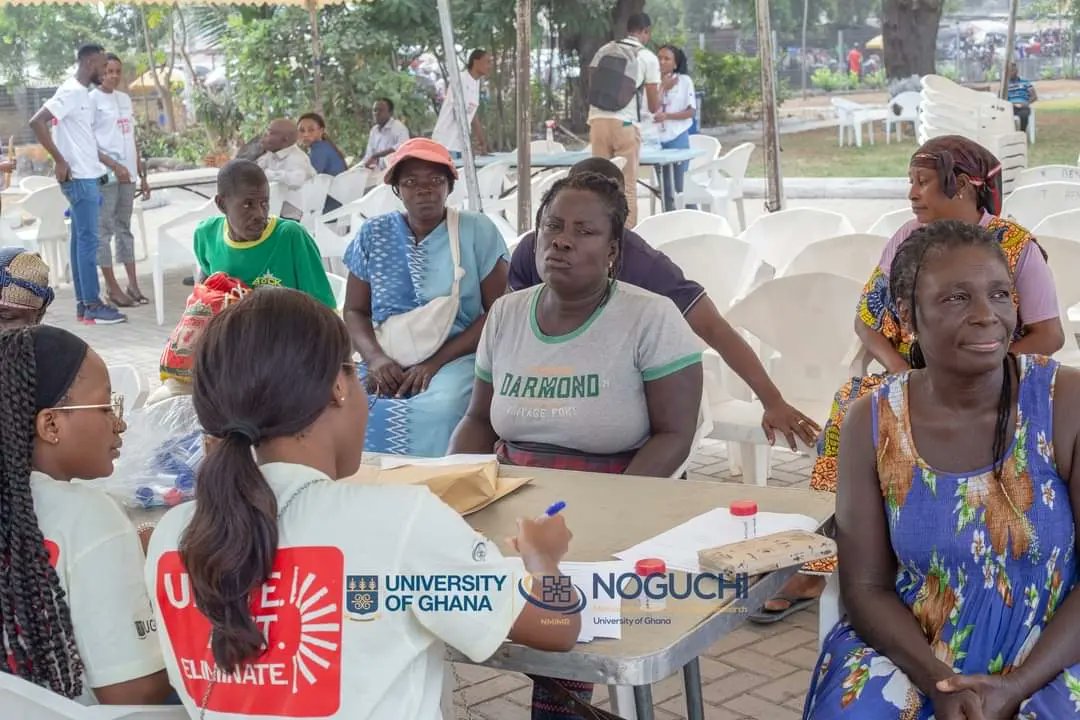![World Health Day: Depression and spate of suicide in Ghana [Article]](http://citifmonline.com/wp-content/uploads/2016/04/Suicide.jpg)
According to an updated fact of the World Health Organisation (WHO, March 2017), one of the key facts of depression is: “at worst depression leads to suicide”. In the month of February and March, 2017, suicide made headlines in Ghana.
Coincidentally this year, the World Health Day theme is “Depression: Let’s talk”. April 7 is celebrated as World Health Day to mark the founding of WHO – a specialised UN agency concerned with international public health. For sixty-seven years the WHO has celebrated World Health Day, focusing on various health issues.
Depression is a common mental disorder that presents one with depressed mood, loss of interest or pleasure, decreased energy, feelings of guilt or low self-worth, disturbed sleep or appetite, and poor concentration. Depression affects more than 300 million people of all ages; it’s the leading cause of disability worldwide, and a major contributor to the overall global burden of diseases; more women are affected by depression than men; at its worst depression can lead to suicide; and, there’re effective treatments for depression.
It’s the above mental conditions that bring about suicide. In fact, the WHO states the following facts about suicide: close to 800000 people die due to suicide every year; for every suicide there’re many more people who attempt suicide every year and that, a prior suicide attempt is the single most important risk factor for suicide in the general population; suicide was the second leading cause of death among the age range of 15 and 29 in 2015; and, 78% of global suicides occur in low-and middle-income countries.
In Ghana, media reports on suicide are alarming. The Daily Graphic (September 15, 2015 edition) reported that Ghana records 1,500 suicide cases annually and this is caused by depression. This was revealed by Dr. Akwasi Osei, the Chief Executive Officer (CEO) of the Mental Health Authority (MHA). Dr. Osei added: “in every single reported case of suicide there were four unreported cases and this brings the number of unreported cases to about 6,000 annually”.
The WHO (2012) also states that globally, for every person who completes a suicide 20 or more may attempt to end his or her life.
Beyond the medical view that suicide is a public health problem, Emile Durkheim a founding French Sociologist in his view stated suicide occurs as a consequence of decrease in social integration. Durkheim categorised suicide in four ways: anomic, altruistic, egoistic and fatalistic. In each of the categorisations, Durkheim views the causal factor of suicide to be the break in relationship between an individual and his immediate environment and vice versa.
Depression can be experienced in multiple ways: depressive episode and bipolar affective disorders. Depressive episode involves a depressed mood, loss of interest and enjoyment, and increased fatigability; whereas, bipolar affective disorder typically consists of both manic and depressive episodes separated by periods of normal mood.
Although depression is treatable, WHO states that there’re various barriers to the treatment of depression: lack of resources, lack of trained health-care providers, social stigma associated with disorders and inaccurate assessment resulting in a misdiagnosis.
In Ghana, the absence of a national policy on suicide prevention is one of the greatest challenges, coupled with lack of political will and commitment to empower the MHA and negligence of counseling and guidance centres in schools and communities.
The media has also come under attack for how it has reported suicide incidents. Media organisations must set standards for their reporters on reporting of public health issues such as depression and its accompanied consequences.
All said and done, depression causes suicide; let’s deal with depression – depression is a global crisis that must attract attention of all. This effort gives us control of the spate of the dire consequences of depression – suicide, now and in the future. Also, there’s an urgent need for designing and implementing a national policy on suicide prevention at all levels of our national and communal lives.
–
By: Alex Blege
The writer is a freelance journalist.
[email protected]/[email protected]
According to an updated fact of the World Health Organisation (WHO, March 2017), one of the key facts of depression is: “at worst depression leads to suicide”. In the month of February and March, 2017, suicide made headlines in Ghana. Coincidentally this year, the World Health Day theme is “Depression: Let’s talk”. April 7 is ... Read Full Story




















Facebook
Twitter
Pinterest
Instagram
Google+
YouTube
LinkedIn
RSS